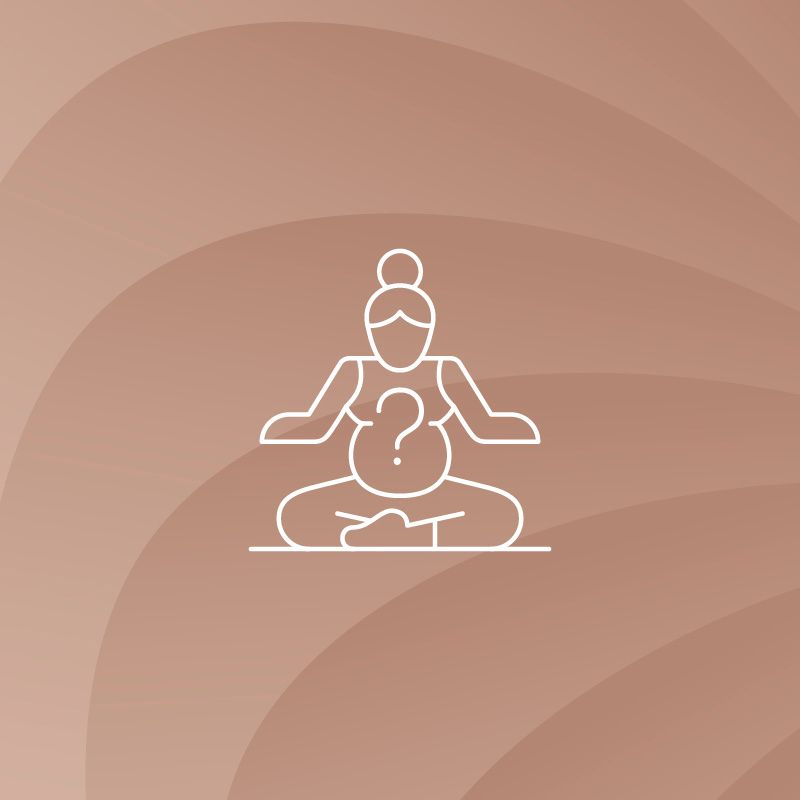
Behavioral recommendations
We are happy to answer your questions about behavioral recommendations during pregnancy in our pregnancy consultation hour. You can find some tips and the most frequently asked questions here on this page.
Here you will find a brief summary of the most common topics.
- An adequate supply of folic acid is very important for the body, especially in early pregnancy. For this reason, women of childbearing age who are planning a pregnancy are recommended to start taking folic acid tablets before conception.
- Healthy and balanced diet: During pregnancy, it is important to eat a healthy and balanced diet. In addition to the main meals, eat 1 to 2 snacks with plenty of fruit, vegetables, wholegrain products, fish and lean meat. Sugary and fatty foods, on the other hand, should be avoided. Additional multivitamin supplements can also be taken. The weight gain, at a healthy initial weight, is between 10 and 18 kg.
- Raw meat and raw fish: You should take care to avoid raw meat and raw fish during pregnancy to avoid the unpleasant consequences of bacterial infections or parasite infestation. Always make sure you cook meat products completely, wash your hands thoroughly and, when choosing fish, make sure it is fully cooked.
- Raw milk products: Raw milk products such as raw milk cheese, raw milk butter, yoghurt made from raw milk and unpasteurized milk may contain bacteria such as listeria or E. coli. These bacteria can cause serious infections in a pregnant woman and possibly harm the fetus. You should avoid consuming raw milk products during pregnancy and choose pasteurized milk products instead to avoid the risk.
- Sufficient exercise: Regular exercise during pregnancy promotes the physical health and well-being of pregnant women. Suitable sports such as swimming, yoga or Pilates can help here. However, it is advisable to consult the practice team before starting a sports program.
- Avoid alcohol, nicotine and drugs: Alcohol, nicotine and drugs can harm the unborn child and should be completely avoided during pregnancy.
- Pregnant women should always consult our practice team when taking medication, as some medications can harm the unborn child. The practice team can help to assess any risks and offer alternative treatment options if necessary.
- Sufficient sleep: Pregnant women should get enough sleep to maintain their physical and mental health. An increased need for sleep during pregnancy is normal.
- Avoiding stress: Stress can have a negative effect on pregnancy. Pregnant women should therefore make sure they relax sufficiently and try out relaxation techniques if necessary.
- Regular check-ups: Regular check-ups with a gynecologist are necessary during pregnancy to monitor the health of mother and child.
- In most cases, air travel during pregnancy is generally unproblematic, but there are a few things that pregnant women should bear in mind.
Air travel during pregnancy
In most cases, air travel during pregnancy is generally unproblematic, but there are a few things that pregnant women should bear in mind. Here are some important points.
- It is always advisable for pregnant women to have a medical examination before booking a flight to ensure that there are no specific concerns or risks.
- As a rule, pregnant women can travel up to the 36th week of pregnancy, provided there are no complications in the pregnancy. However, different regulations apply to flights to or from other countries. It is advisable to enquire about the exact guidelines with the airline in advance.
- When traveling by plane, pregnant women should always drink enough and regularly stand up and walk a few steps on the plane to avoid circulatory problems and the risk of thrombosis.
- As a rule, pregnant women are allowed to fly up to the 20th week of pregnancy without any special conditions. In some cases, a medical certificate may be required to confirm that the pregnancy has no complications.
- It can be difficult from the 28th week of pregnancy. Airlines have different guidelines on this subject. It is advisable to find out in advance.
- The radiation absorbed during a flight is harmless for pregnant women. However, it is advisable to avoid frequent flights during pregnancy.
- Pregnant women should also ensure that they are not exposed to unnecessary stress when traveling. Travel planning with a risk assessment for typical local infectious diseases is recommended.
- Link: Robert Koch Institute, SWISS, BAG
Hair dye
There are no conclusive studies on the effects of hair dyes on the fetus. There is evidence that some ingredients in hair dyes can enter the bloodstream of a pregnant woman and possibly pass through the placenta to the fetus. The extent to which this can affect the fetus is unclear.
It is recommended to avoid using hair dye during the first trimester of pregnancy and only use it during the second and third trimesters if it is really necessary. If you do use hair dye, make sure you have a well-ventilated room to avoid breathing in the vapors from the dye. It is also important that you wear gloves when applying the hair dye to avoid direct contact with the skin.
Nail polish
The use of nail polish during pregnancy is generally safe. There is very little evidence that certain chemicals in nail polishes could be harmful to the fetus. Nail polishes usually contain formaldehyde and toluene, which primarily evaporate and can have negative effects if inhaled. If you use nail polish, you should ventilate the room well or apply it outside to escape the vapors.
Online appointment booking
Would you like an appointment? It's quick and easy with our online booking tool - we look forward to hearing from you!
Find out more - for your well-being
Here you will find further information on a healthy lifestyle and behavior during pregnancy.

Pregnancy

Behavioral recommendations


